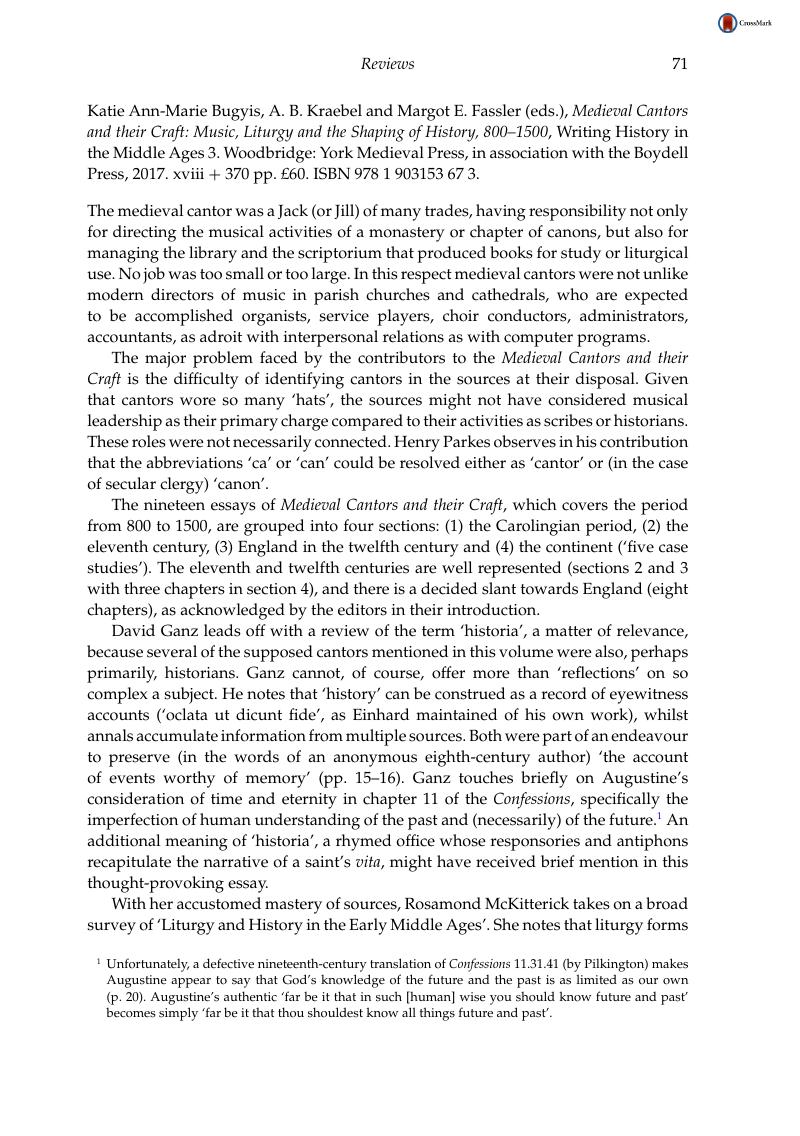No CrossRef data available.
Published online by Cambridge University Press: 02 April 2018

1 Unfortunately, a defective nineteenth-century translation of Confessions 11.31.41 (by Pilkington) makes Augustine appear to say that God's knowledge of the future and the past is as limited as our own (p. 20). Augustine's authentic ‘far be it that in such [human] wise you should know future and past’ becomes simply ‘far be it that thou shouldest know all things future and past’.
2 Calvin Bower's edition of the text and music of the sequences mentioned in note 14 has now appeared as vols. 121–2 in the series of publications of the Henry Bradshaw Society, and is reviewed above, pp. 63–7.
3 The ‘pueri’ saved by St Dunstan from a beating by their schoolmasters are not identified as ‘choristers’ (p. 132).
4 Peter Browe says nothing of such a practice in the chapter on Ordensfrauen in Die häufige Kommunion im Mittelalter (Münster in Westf., 1938), 89–97.
5 Pope Leo III (796–816) introduced the Frankish rogation processions to Rome. The Liber pontificalis calls them by the traditional Roman appellation litaniae; LP 2:12.
6 Braun, Joseph, Die liturgische Gewandung im Occident und Orient nach Ursprung und Entwicklung, Verwendung und Symbolik (Freiburg im Breisgau, 1907), 448–57CrossRefGoogle Scholar.